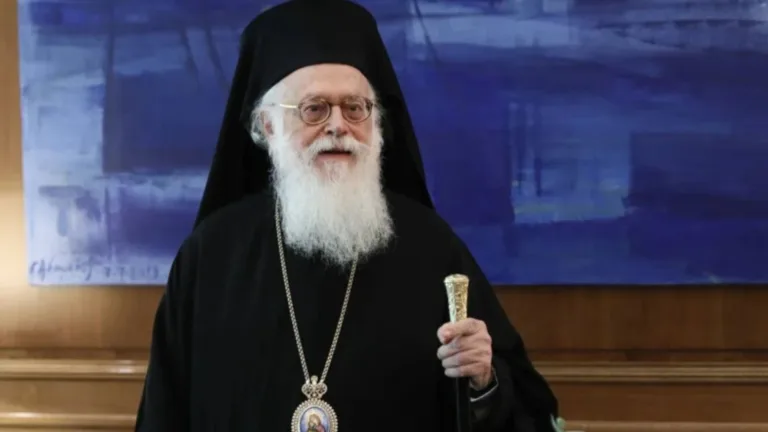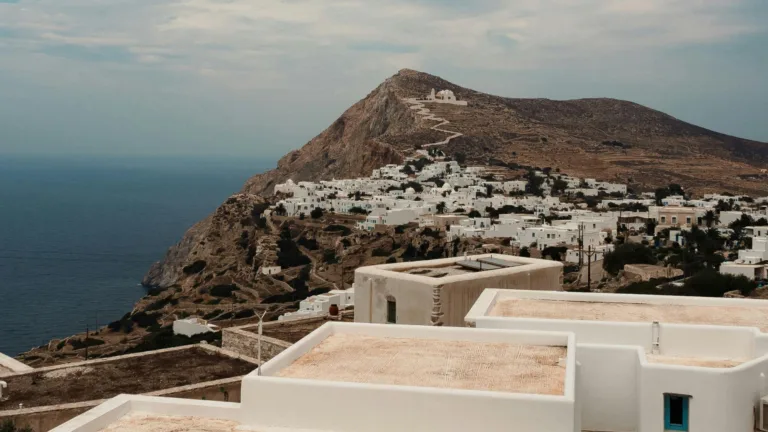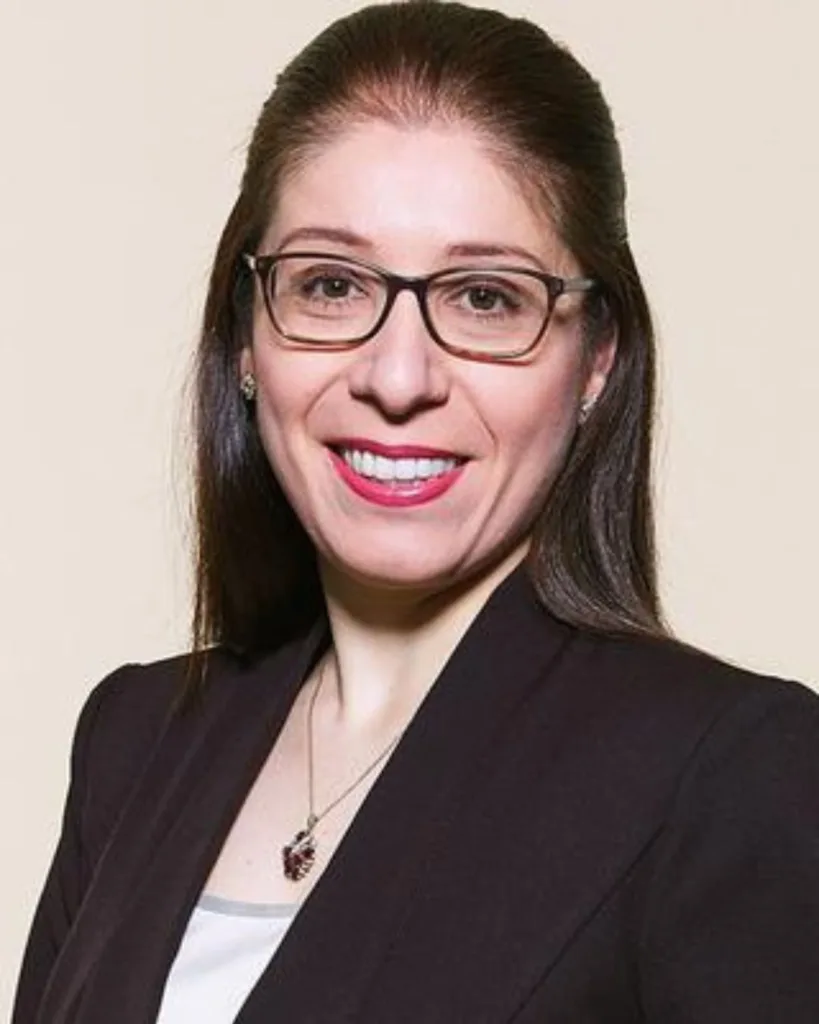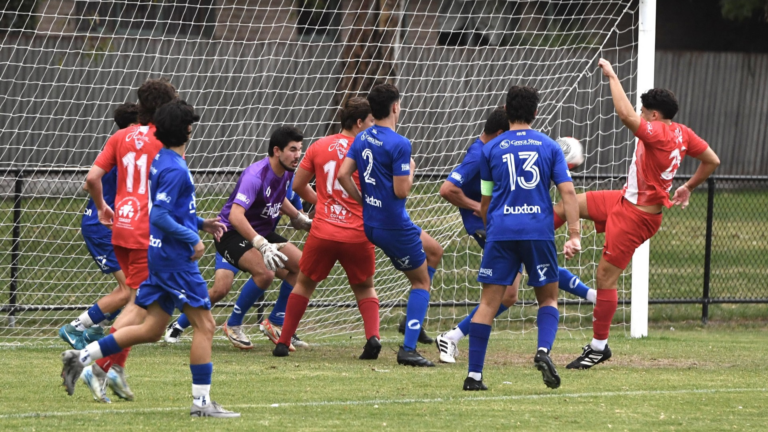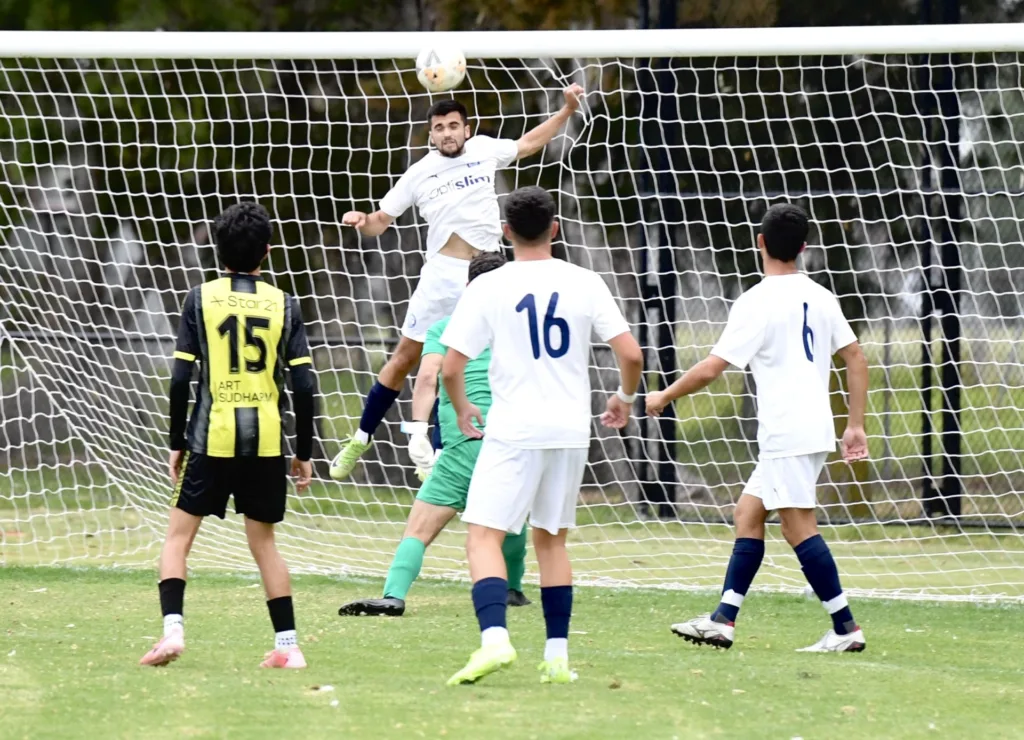By Andreas C Chrysafis*
The island of Cyprus is going through major transformations, political, social, economic and cultural dimensions! If those changes continue unchecked they may lead to the irreversible loss of its ancient Hellenic identity. Cyprus’s legacy deep rooted in its history, it now stands at the crossroads and vulnerable to political, social and demographic sweeping changes brought about by homegrown political incompetence but also due to foreign influences.
Cyprus, perched in the Eastern Mediterranean Basin has long been a land of paradox—a blessed island yet a cursed one! Its strategic location has made it a coveted stepping stone and a gateway to Western markets, the Far East and Egypt. That curse has now become more dangerous than ever before especially after the discovery of natural gas in its Exclusive Sea Protection Zone. (EEZ). Today, the island’s untapped recourses with its strategic military position have turned it into a magnet for foreign powers seeking exploitation and military dominance in the region.
The island has been a prized trophy for centuries and shares the hallmarks of foreign exploitation and domination. One of the most dangerous countries in the region is Turkey, where Sultan Erdogan envisions his Neo-Ottoman Empire and Cyprus, lays smack in the centre of his ambitions.
Nobody can tell what the Sultan’s cunning mind plots for the future (not even the West can predict that) for he has mastered the art of deceipt. Demographic engineering has long been a potent tool for reshaping and even erasing ethnic identities of nations and today, the island’s future hangs in the balance.
Jewish/Israeli Connection
In the last decade a somewhat—aside from the European Union’s influence in the affairs of the Republic—a surprising contender has emerged in the property investment arena of the island: the Israeli Connection! The sudden surge of calculating Jewish/Israeli acquisitions in EU-Cyprus worth millions has prompted speculation of the scale and nature of these ventures. Why now?
Is there more than meets the eye behind this influx of capital investments and growing acquisitions of hotels, land and properties coming from Israel and investors of Jewish origins in diaspora?
The trend gained momentum immediately after the IMF/EU Troika’s 2013 Bail-in robbery in Cyprus by the Anastasiades government to save a corrupt banking system by stealing people’s bank accounts without their consent. Repossessed properties and toxic loans were sold en-masse at staggering discounts—often 80-90% of the outstanding debt to international Banking Hedge Funds while at the same time, borrowers were held liable for the outstanding debt!
Cyprus banks eager to clear their books of toxic loans facilitated the sale to bulk buyers who seized the opportunity like bees to a honeycomb! What’s particular striking is the geographical scope of these investments within the Cyprus Republic but also in the Turkish occupied northern part of the island.
Greek properties and land in the occupied north are offered to Jewish/Israeli investors for a steal by the illegal Turkish Cypriot Authority for development; properties that in fact, truly belongs to Greek refugees! Could this wave of ventures simply reflect savvy investment strategies, or are there deeper, strategic considerations at play? The answers remain elusive, but the curious Israeli Connection is undoubtedly reshaping Cyprus’ political landscape in significant ways.
The common perception—that “foreign investments are good for the economy” —is frequently invoked, but it fails to address the deeper question about social, demographic, environmental, and economic repercussions such projects may entail for the small island. It has been suggested that some dark forces envision EU-Cyprus of becoming a “new Israel” or an “extension of the existing one.” Real or not, they undoubtedly provide food for thought!
Jewish Ambitions
Jewish settlements in Cyprus trace back to ancient times when Jews living in Cyprus have actually experienced two major expulsions from the island. The first mass exile occurred soon after the destruction of the First Temple in the 586 BC, and the second after the obliteration of the Second Temple in 70 AD. In both instances, Jews were banished forever and forbidden to live in Cyprus!
The most blatant historical ambition to take over the island and make it into a Jewish state were exhibited by the Zionist Movement in Diaspora years after the expulsion of the Jews from Portugal by King Manuel. Thousands of displaced Portuguese Jews found refuge in Venice, including the family of Joseph Miquel Nasi, whose mother was a prominent socialite and banker’s wife. As a young boy, Joseph soon took offense to Venetian high society for ignoring his mother’s social status and vowed to punish the Venetians for ill-treating his mother! In 1568 the Jews were once again ordered to leave the city of Venice forcing Joseph Miquel Nasi and his family relocate to the influential and prominent city of Constantinoupolis.
The Ottoman Empire expanded rapidly and Joseph Miquez Nasi—a brilliant strategist and financial expert—rose to prominence as the most trusted advisor and confidant to Sultan Selim II. In fact, he had become known throughout the Empire as “The Great Jew”. In recognition for his loyalty to the Turkish Empire, the Sultan bestowed upon him the title of Duke of Naxos and the Seven Seas.
However, behind the prestigious titles, Nasi harboured a secretive personal mission: His ambition stemmed from a vow made to his mother to punish the Venetians and fulfil his ultimate dream of becoming the new King of Cyprus. His friend Sultan Selim II approved his ambitious plan and ordered the preparation of an immense invasion force against the Venetian-held island of Cyprus. By assembling a fleet of 400 ships and a formidable army of 60,000 well-equipped soldiers, the Sultan was more than ready to keep the promise made to his good friend Nasi.
On 27 June 1570, the Ottoman invasion-fleet, under the command of Lala Mustapha Pasha, cast off to capture Cyprus from the Venetians. The passionate realisation of “the Great Jew” to establish a Jewish settlement on the island were now more real than ever before! Using the island as a stepping-stone to Zion, the Zionist colonisation of Cyprus envisioned as a territorial solution to rootless Jewish communities—so acute in the 16th century—offered Miquel Nasi the opportunity to provide a permanent sanctuary to stateless Jews in Diaspora.
But for Joseph Miquel Nasi, it was not meant to be: “The Great Jew” died and did not live to see his dream of becoming King of Cyprus, nor to provide a homeland for displaced Jews! The Zionist colonisation of Cyprus remained unrealized, bringing to an end of one man’s remarkable, yet incomplete legacy.
Fledgling State of Israel
After the Second World War, Cyprus played a significant humanitarian role in supporting thousands of Jewish refugees attempting to return to the Promised Land! Following the liquidation of the Nazi concentration camps in Europe, the British set up a massive barbed-wire detention camp at Karaolos for Holocaust survivors trying illegally to enter Palestine. Determined to reach their destination, over 1,600 tragically drowned at sea, while only a few thousand have managed to arrive safely in Palestine. Of the 64 vessels that sailed for Palestine, Exodus 1947 a steamship departing from France was the biggest. It carried 4,515 passengers—the highest number of illegal immigrants ever attempting to reach and occupy Palestine. The steamship was apprehended and all refugees were shipped back to France in three separate vessels.
Between 1946 and the establishment of the State of Israel in 1948, the British confined over 50,000 Jewish refugees in Cyprus unsure what to do with them. During this time, Cypriots played a critical role in supporting the Jewish migrants detained inside the Karaolos Detention Camp in Famagusta. Despite their own struggles under British rule, local Cypriots—many of who were impoverished themselves, showed extraordinary compassion. They visited the detention camp providing clothing, food, water and other provisions to help out and ease the plight of those trapped in bleak conditions. Their generosity reflected a profound truth: poverty has neither enemies nor envy!
These events remain undeniable historical facts for which cannot be disputed; facts that have taken place in a by-gone era marked by the stark contrast between acts of ethnic brutality and acts of human empathy for those people less fortunate. Greek Cypriots demonstrated compassion and humanity to Holocaust survivors the best way they could—even as they themselves endured the hardships of British colonial subjugation!
The humanitarian efforts by Greeks in aiding those in need, serve as a powerful reminder of how humanity and solidarity can coexist in the face of adversity!
New realities
Nowadays things are very different; a new and shrewd trend across the island is taking place that could have far-reaching consequences in the future! Money, corruption and exploitation for profit have become the new religion of the day! Cypriots now face not only with the challenges posed by the Turkish military invasion but also face another form of intrusion—this time cunning economic one! A wave of companies and individuals of Jewish/Israeli origin are systematically purchasing properties throughout EU-Cyprus—including the Turkish occupied north—raising public concerns about the implications of such a practice.
It seems as thought there is a deliberate mission to acquire and develop as many Israeli-owned properties as possible: hotels, villas, apartments, prime industries, and vast tracts of land for development! The public is seriously questioning the motives and what lays behind this sudden surge of interest in properties and investments in Cyprus! Meanwhile, the government and most political parties continue to praise the Israeli investment spree “in a free market society” as a positive move for the economy, often with little consideration for the long-term implications for the island’s future.
A number of major hotels in Limassol, Nicosia, Paphos and Larnaca have already changed hands and the buying frenzy has extended as far as the picturesque and quaint Latchi waterfront in Polis Chrysochous where Israeli companies have purchased most of the hotels. Meanwhile, a massive but contentious “all inclusive” Israeli resort complex—that looks like a settlement—comprising more than twenty steel buildings aimed for the Israeli market, is being constructed by a Jewish consortium. This development proceeds with little consideration for the environmental impact or the infrastructure of the local community.
The developers ignoring building permits and conditions added extra floors and additional mass structures without proper planning consent. As a result, the public is now confronted with an overwhelming eyesore; an ugly complex perched prominently atop the hill at the very entrance of beautiful Latchi! Such actions demonstrate a stench of corruption, disrespect for the law but also disregard for the local community. Meanwhile, the authorities seem to turn a blind eye, leaving citizens questioning why such actions are allowed to take place in a EU country that prides itself on upholding the Rule of Law!
*Andreas C Chrysafis is a UK published author of five books and over 450 press articles but also a recognized artist. His works are globally available and can be viewed here
Copies: www.artpal.com/chrysafis
